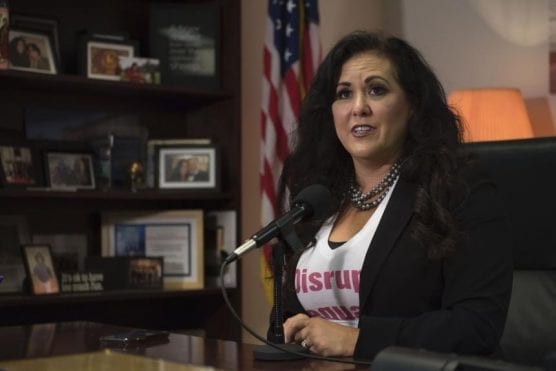Freelance journalists may soon breathe a sigh of relief after California Assemblywoman Lorena Gonzalez (D-San Diego) announced amendments had been made to her controversial independent contractor law by removing the cap on the number of submissions freelancers could send to an outlet.
Assembly Bill 5 – which passed the Legislature this past September and was signed into law by Gov. Gavin Newsom – went into effect Jan. 1. AB 5 codified the state Supreme Court’s Dynamex decision, which created a three-part “ABC test” for determining if California workers are misclassified as independent contractors when they should receive employment benefits.
It’s been challenged by gig economy giants Uber and Postmates, with grocery delivery company Instacart vowing to appeal a judge’s order this week finding it likely violates the law by misclassifying shoppers.
But AB 5 also applies to freelance journalists.
The law originally included a provision barring freelancers from submitting more than 35 “submissions” to a single hiring entity – a rule freelancers complained could effectively kill their careers.
“Having heard additional feedback from a variety of freelance writers, photographers and journalists, we are making changes to Assembly Bill 5 that accommodate their needs and still provide protections from misclassification,” Gonzalez said in a statement Thursday.
Gonzalez said she’d introduced amendments to remove the submission cap, but that a contractor cannot replace an employee position.
Freelance contracts must also specify the rate of pay, the deadline for payment and the individual’s property rights to the work, according to the amendments. Freelancers cannot be restricted from working for more than one hiring entity and cannot primarily perform their work at a hiring entity’s business location.
The American Society of Journalists and Authors and National Press Photographers Association sued the state over the law this past December, before it went into effect, claiming their careers were threatened due to the submission cap.
A few days after AB 5 took effect, a Los Angeles judge blocked the journalists’ attempt to restrain the state from enforcing the new law.
Attorney Jim Manley of Pacific Legal Foundation represents the freelance journalists organizations and said in an interview they would not be dismissing the lawsuit in light of the amendments announced Thursday.
“The amendment doesn’t affect the lawsuit at this point because it’s just proposed hasn’t been heard yet or signed by the governor,” Manley said.
“There’s an urgent need from our clients’ members for the courts to step in and put an immediate stop to these limits. They’re losing work right now because these limits are in place,” he added.
Manley said while the lawsuit challenged the 35-submission cap, Thursday’s amendments don’t address the prohibition on video recording by freelancers challenged in the lawsuit.
A preliminary injunction hearing in the freelancers’ lawsuit is still scheduled for March 9 in Los Angeles, Manley said.
San Diego-based freelance journalist Jackie Bryant said in an interview Thursday she has lost work in the two months AB 5 has been in place, including from two outlets who decided to no longer hire freelancers based in California.
But Bryant – who was involved with California Freelance Writers United in petitioning Gonzalez’s office to make amendments – said she doesn’t believe AB 5 “is an inherently bad thing.”
“I think they missed the mark for freelance writers,” Bryant said, noting the new provision establishing a deadline for outlets to pay freelancers “is how you help independent contractors.”
“That’s been my rallying cry. AB 5 addressed the wrong issues,” Bryant said, pointing out she had to solicit more work on Twitter recently because she’s only been paid $300 of the $4,000 in work she’s billed clients for since the beginning of the year and she’s worried about paying rent in March.
Bryant said AB 5 can’t prevent the newsroom layoffs that happen due to buyouts from venture capitalists creating media conglomerates and other problems that continue to shrink the number of full-time journalism jobs.
But she said freelancers fill an industry gap.
“Stringer culture, freelance culture is inherently important for journalism,” Bryant said.
“You need people out there in the field. It’s inherent to the success of journalism. We plug holes in publications and provide necessary stories that may not come to light,” she added.
— By Bianca Bruno
Like this:
Like Loading...
Related





 Tweet This
Tweet This Facebook
Facebook Digg This
Digg This Bookmark
Bookmark Stumble
Stumble RSS
RSS


























REAL NAMES ONLY: All posters must use their real individual or business name. This applies equally to Twitter account holders who use a nickname.
0 Comments
You can be the first one to leave a comment.